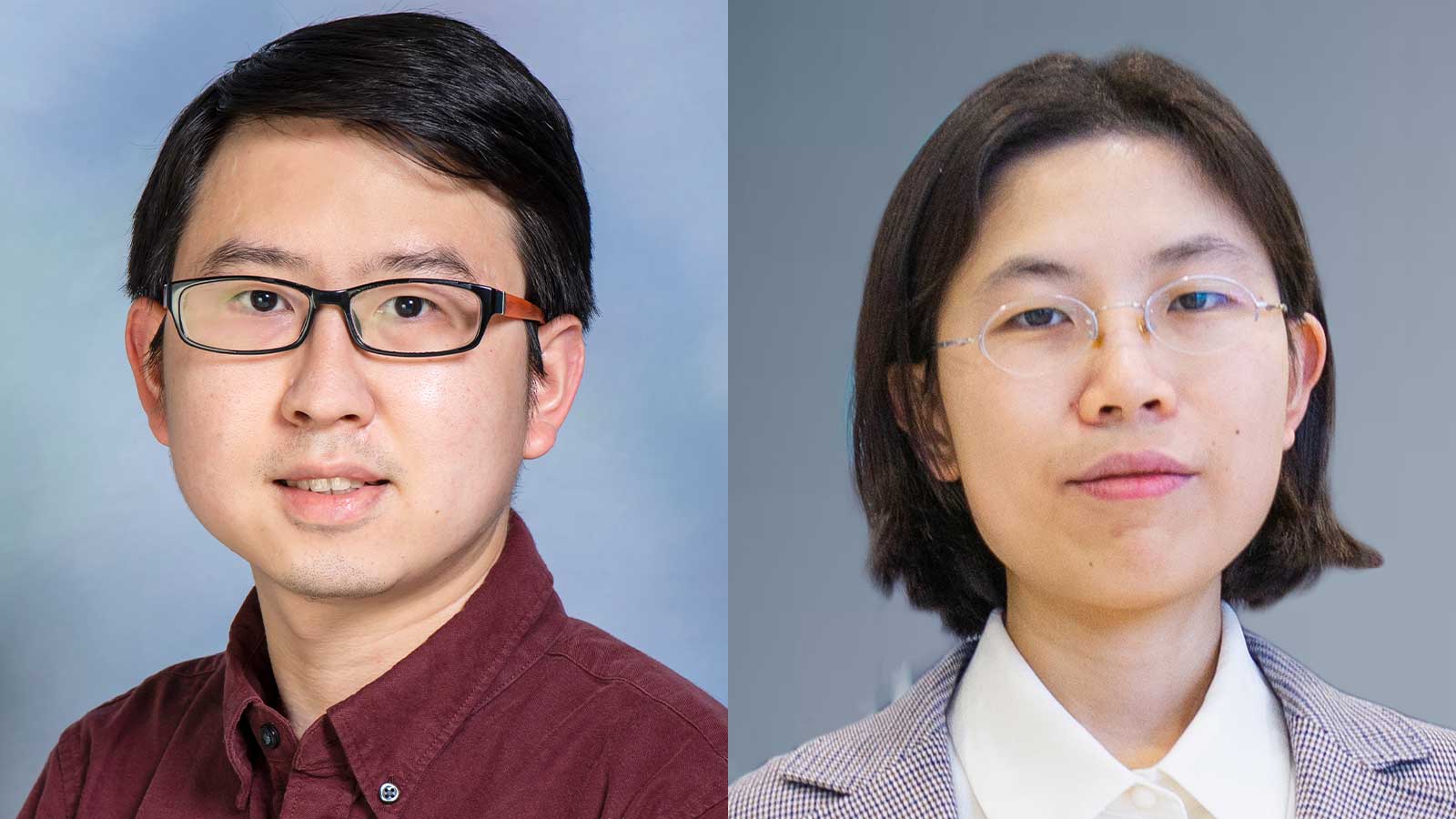The first two faculty members to join the Rice Quantum Initiative, founded in 2021 with the goal of adding 12 new researchers to the effort, have been hired.
They are Songtao Chen, who joined the Rice faculty in July 2021, and Shengxi Huang, who will join in July 2022. Both are assistant professors of electrical and computer engineering (ECE).
Chen earned his M.S. and Ph.D., both in ECE, from Brown University in 2016 and 2018, respectively. He worked as a postdoctoral research associate in ECE at Princeton for three years, developing multiplexed quantum network nodes using single erbium ions.
Chen’s research focuses on quantum information processing using solid-state spins. His group explores methods to gain control over defect spin systems in silicon with telecom optical interfaces towards building scalable quantum networks. By combining defect spins with silicon photonic circuits, he aims to develop large-scale hybrid integrated spin-based quantum photonic chips as platforms for quantum communications, computing and sensing applications.
Huang earned her Ph.D. in electrical engineering and computer science from MIT in 2017. She served as a postdoctoral research associate at Stanford University and was hired as an assistant professor of electrical engineering at Pennsylvania State University in 2018.
She has won an NSF CAREER Award, the Young Investigator Award from the Air Force Office of Scientific Research, the Johnson & Johnson STEM2D Scholar’s Award (one of six awardees worldwide in six disciplines) and the Kavli Fellowship for Nanoscience.
Huang’s research interests include quantum sensing, quantum materials and machine learning. She has devised new methods for probing quantum states and bio-quantum interfaces, diagnosing neural diseases and discovering biomarkers. With her AFOSR funding she is investigating super-radiant sensing.
In 1979, Rice chemists Rick Smalley and Bob Curl co-founded an interdisciplinary institute, the university's first, to foster quantum research. Their discovery of buckyballs six years later sparked the development of nanotechnology and earned them and British collaborator Harry Kroto the Nobel Prize for Chemistry in 1996.
Rice has almost 50 faculty members already working in the fields of quantum science and engineering, performing research in algorithms, devices, materials, chemistry and simulation. Rice researchers are especially visible and admired in the studies of quantum matter, systems whose properties can only be explained by quantum theory, including ultracold atomic gases and quantum materials.

